Description
Product Overview
Despite a 40 year history of building musical instruments, Casio has traditionally dominated the entry-level and intermediate markets, with a lesser presence in the high-end world. This has changed over the last several years, due in large part to the advancements made by the Celviano Grand Hybrid GP series instruments, which absolutely hold their own against similar offerings from the ‘Big 3’ of Kawai, Roland, and Yamaha.
The Casio GP-310 grand hybrid is a very recent arrival in celebration of Casio’s 40 year anniversary of building musical instruments and serves as an upgraded version of the well-regarded GP300. One of the top actions on the market, Casio’s Natural Grand Hammer Action keyboard, made with full-length wooden concert grand piano keys, has been enhanced with greater touch sensitivity. They’ve further improved on the samples of the three legendary grand pianos delivered via the AiR Grand Sound Source – the Berlin, Hamburg, and Vienna grand pianos – with longer, more natural decay than its predecessor, creating a more refined level of authenticity.
They’ve also improved on the speaker system; the GP-310’s speaker system is more powerful than the system in the GP300, with larger drivers that better utilize the built-in amplifiers. You’ve also got an improved damper pedal capable of more realistic half-pedaling. Adding it all up, you’re left with a total package sure to turns heads and meet the demands of folks seeking a high-quality hybrid piano.
Action
The action featured in the GP310 really showcases how far digital piano manufacturers have come. The Natural Grand Hammer Action keyboard, utilizing the same materials (Austrian spruce) and processes as the C. Bechstein concert grand piano actions, is one of the most advanced actions currently available in a digital piano. The full-length wooden keys are close in length to a real grand piano and provide the player with better control and touch response than your typical digital piano action.
The mechanism here is built to mimic the same path of motion the hammer takes as it does as in a grand piano. With the lid open, you can actually see the hammers in motion through a clear panel, offering a unique glimpse inside the inner workings of the instrument.
Overall, there’s no doubt the dynamic range or sensitivity levels available have been improved, due to what Casio refers to as their touch response algorithm. There’s no doubt that this action is easier to control when playing pianissimo as opposed to the action found in the GP300, and the repetition speed seems to be improved as well.
Piano Sound
The GP310 features Casio’s AiR Grand Sound Source, which is the top sound engine Casio produces and features 256 note polyphony. They’ve incorporated something they refer to as Multi-dimensional Morphing here, which essentially mimics the way an acoustic piano’s volume and character of sound change from the time the keys are struck, until the note fades away, one of the many subtle nuances of this tone engine.
The main selling point of the tone engine here is of course the three main grand piano sounds it features. The first of the three, the Berlin Grand sound, was developed in collaboration with C. Bechstein. The 9 foot D 282, C. Bechstein’s finest instrument and one of the finest concert instruments in the world, is the model Casio sample for this tone. Mr. Albrecht, Service Director, and Master Piano Maker at C. Bechstein, actually visited the Casio R&D department to supervise the development process of this particular sample. Overall, this sample is super clear and colorful.
The Hamburg grand sound is of course based on the Hamburg Steinway Model D, and definitely stands out for its brilliance and power, whereas the Vienna sound is based on the Bosendorfer Imperial, is the warmest of the three piano tones. In addition to three main grand sounds, there are an additional 23 tones present in the GP310.
The speakers have been beefed up offering a whopping 100 watts of speaker power and is part of what Casios is calling their Grand Acoustic System. The speaker configuration is said to reproduce the three-dimensional sound field generated by an acoustic grand piano. The upper speakers produce sounds normally heard rising upwards, and the downward-facing speakers produce sounds heard from below the soundboard. The overall tonal improvement over the GP300 is definitely obvious.
Connectivity
When it comes to connectivity the grand hybrid GP310 checks off a lot of boxes. You’ve got MIDI OUT/IN terminals, LINE IN R, L/MONO jacks, LINE OUT R, L/MONO jacks, USB port: Type B, and USB flash drive port: Type A. It is a little curious they chose not to feature Bluetooth Audio here, however, that’s not a dealer breaker. There are also 2 standard stereo headphone jacks for quiet playing.
Notable Features
Something definitely worth drawing extra attention to is the adjustable lid, which can be manually raised and closed. The lid’s position physically alters the sound from the upper speakers and also compliments the “Lid Position” setting to duplicate the characteristics of the adjustable lid on an acoustic grand piano.
The volume and character of the sound of a grand piano changes depending on which position the lid is set to. The Lid Simulator setting simulates these acoustic effects digitally. There are four settings for the opening and closing stages and enjoy playing music with the piano sound effect of their choice. This is just super cool.
- AiR Grand Sound Source tone engine
- 26 onboard sounds
- 256 note polyphony
- Acoustic Simulator Paramaters: String resonance, Damper resonance, Damper noise, Key on action noise, Key off action noise, Hammer response, Lid simulator
- 88 wooden key Natural Grand Hammer Action keyboard
- Layer, split, duet, transpose, octave shift
- Effects: Hall simulator (12 types), Chorus (4 types), Brilliance, DSP, Headphone mode
- 15 built-in songs
- On-board audio recorder with space for 99 songs
- Metronome
Conclusion
Casio deserves some serious credit for everything they’ve accomplished here. With a great tone engine and innovative, impressive action, the GP310 is one of the top home digital pianos in its class.
Casio GP-310 Owner’s Manual
- [English] GP-310 Owner’s Manual
Specs
| Keyboard | 88-key piano keyboard |
| Layer, Split | |
| Duet: Adjustable tone range (-2 to +2 octaves) | |
| Transpose: -12 semitones to 0 to +12 semitones | |
| Octave shift: 4 octaves (-2 to 0 to +2) | |
| Sound Source | Number of Tones: 26 |
| Maximum polyphony: 256 notes | |
| Touch Response: 5 sensitivity levels, Off | |
| Tuning: 415.5Hz to 440.0Hz to 465.9Hz (0.1Hz units) | |
| Temperament: Equal temperament plus 16 other types | |
| Stretch Tuning: 5 types, Off, Auto Setting | |
| Acoustic Simulator | String resonance, Damper resonance, Damper noise, Key on action noise, Key off action noise, Hammer response, Lid simulator |
| Effects | Hall simulator (12 types), Chorus (4 types), Brilliance (-3 to 0 to 3), DSP, Headphone mode |
| Concert Play | Number of Songs: 15 |
| Playback of Concert Play songs obtained with a computer, etc. | |
| Song volume: Adjustable | |
| Playback at 80% of normal tempo | |
| 2 Modes: LISTEN, PLAY | |
| Music Library | Number of Songs: 60, User Songs: 10 (Up to approximately 90KB per song, approximately 900KB for 10 songs)* |
| Based on 1KB = 1024 bytes, 1MB = 10242 bytes | |
| Song volume: Adjustable | |
| Part On/Off: L, R | |
| Grand Piano demo song | 6 |
| MIDI Recorder | Functions: Real-time recording, playback |
| Number of Songs: 1 | |
| Number of Tracks: 2 | |
| Capacity: Approximately 5,000 notes total | |
| Recorded Data Protection: Built-in flash memory | |
| MIDI Recorder Volume Level: Adjustable | |
| Audio Recorder | Real-time recording and playback to USB flash drive* |
| Linear PCM, 16bit, 44.1kHz, stereo .WAV format | |
| Songs: 99 files | |
| Approximately 25 minutes maximum recording per file. | |
| Audio Recorder Volume Level: Adjustable | |
| Metronome | Beats: 0 to 9 |
| Tempo Range: 20 to 255 | |
| Metronome Volume Level: Adjustable | |
| Pedals | Damper (with half-pedal operation), Soft, Sostenuto |
| Other Functions | Setting backup |
| Operation Lock | |
| MIDI | 16-chanel multi-timbre receive |
| USB Flash Drive | Capacity: 32GB or less recommended |
| SMF direct playback, data storage, data loading, USB flash drive format, audio data playback and storage, scene storage | |
| Inputs/Outputs | PHONES jacks: Stereo standard jacks x 2 |
| Power: 24V DC | |
| MIDI OUT/IN terminals | |
| LINE IN R, L/MONO jacks: Standard jacks x 2/ Input impedance: 9.0kΩ, Input voltage: 200mV | |
| LINE OUT R, L/MONO jacks: Standard jacks x 2/ Output impedance: 2.3kΩ, Output voltage: 1.8V (RMS) MAX | |
| USB port: Type B | |
| USB flash drive port: Type A | |
| Pedal connector | |
| Acoustics | Amp output: 30W x 2 + 20W x 2 |
| Speakers: 16cm x 2 + (10cm + 5cm) x 2 | |
| Volume sync equalizer (3 types, Off) | |
| Power Requirements | AC Adaptor: AD-E24500LW |
| Auto Power Off: Approximately 4 hours after last operation. Auto Power Off can be disabled. | |
| Power Consumption | 38W |
| Dimensions | 143.4 (W) x 48.9 (D) x 96.3 (H) cm |
| Weight | 78.5 kg |
| Included Accessories | Music Stand, Score Book, Bench, AC Adapter (AD-E24500LW) |
| EAN code | GP-310BK: 4971850362524 |
| GP-310WE: 4971850362531 |
Additional Information
| Weight | 230 lbs |
|---|---|
| Dimensions | 23 × 62 × 29 in |

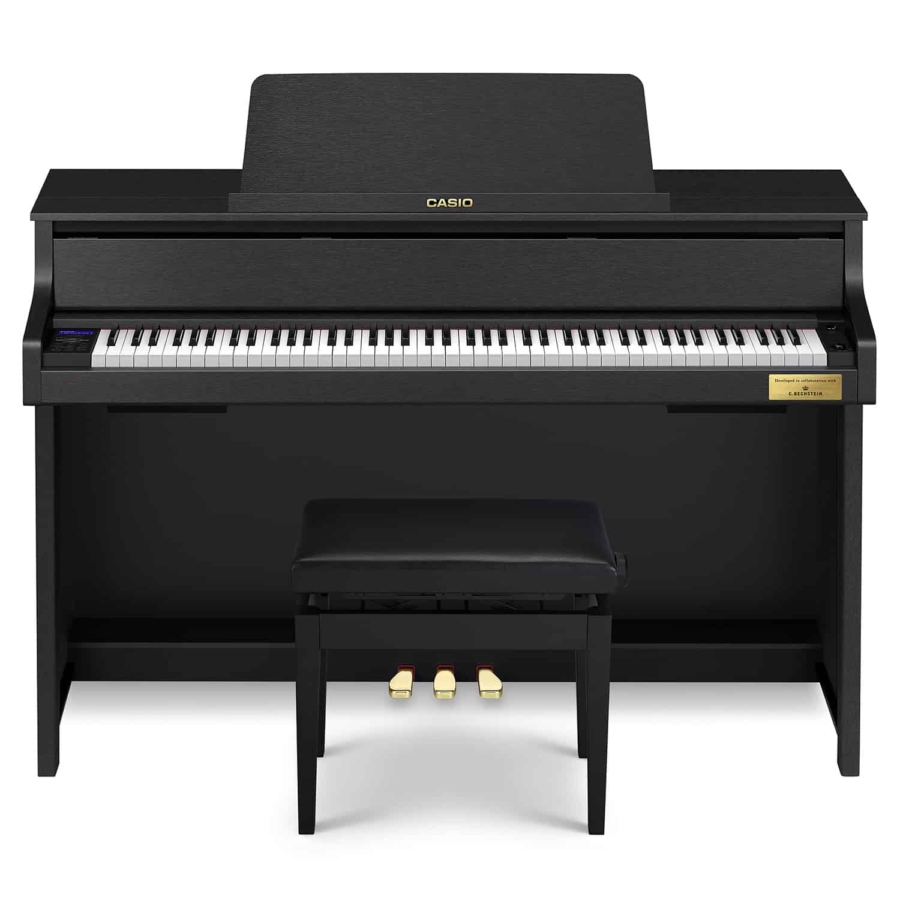
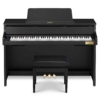
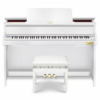
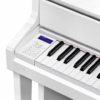
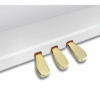
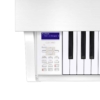
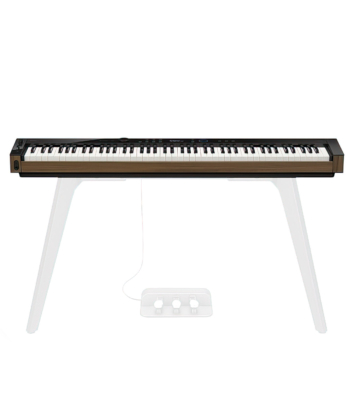
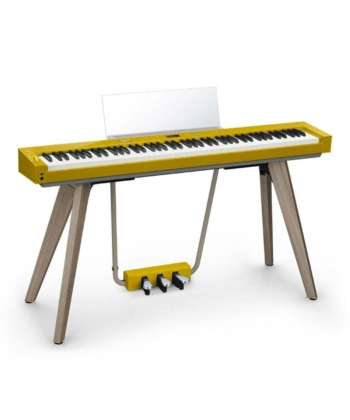
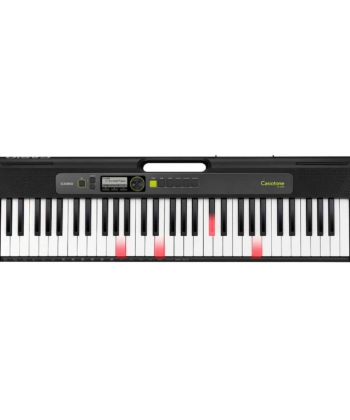

Reviews
There are no reviews yet.